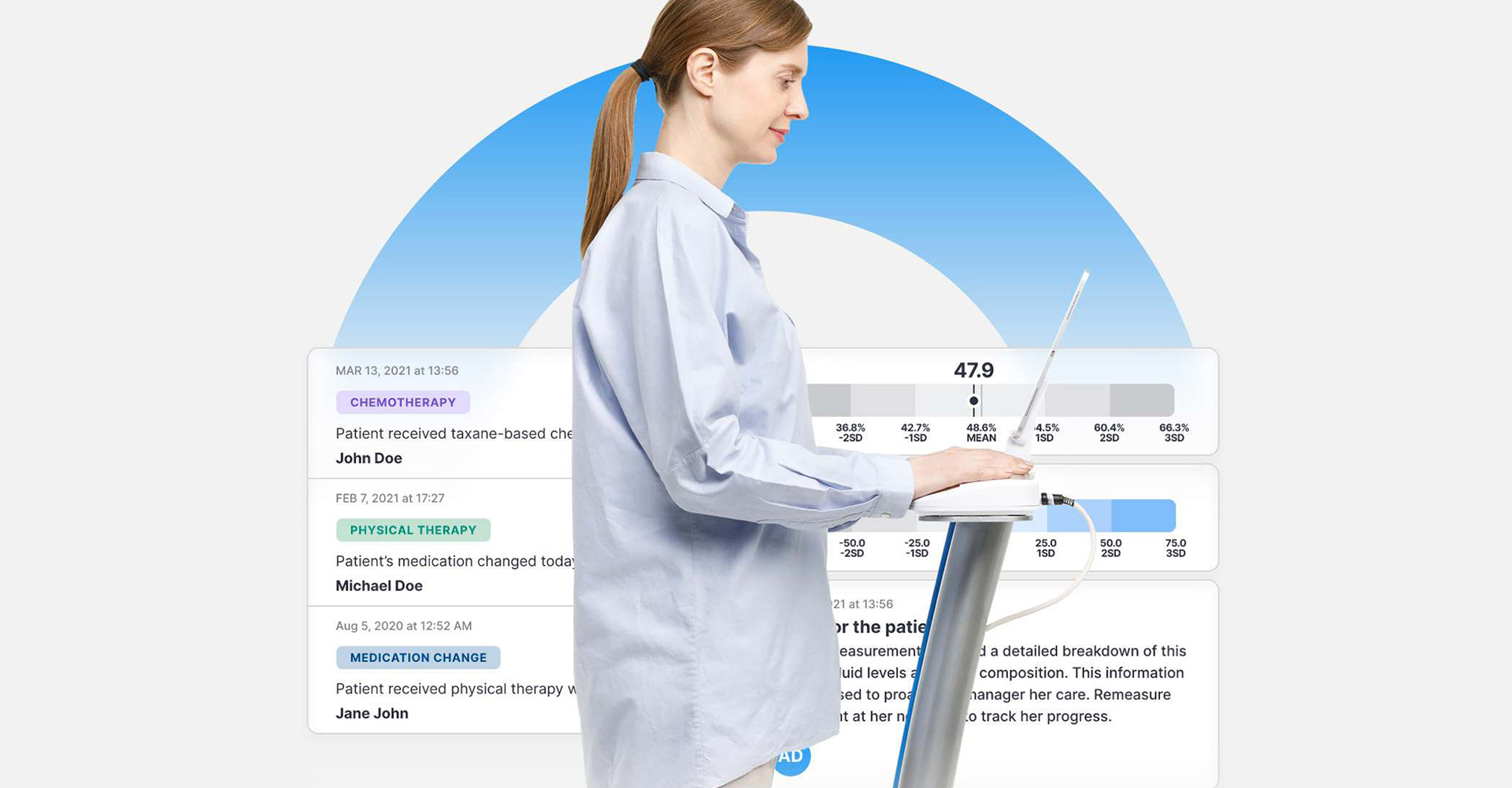The MetroHealth Cancer Rehabilitation and Lymphedema Clinic is collaborating with MetroHealth’s Center for Breast Health to leverage a new technology that screens breast cancer patients for early onset of lymphedema, reports Mary Vargo, MD, Director Cancer Rehabilitation, Department of Physical Medicine and Rehabilitation. The screening device, called Sozo, is a bioimpedance spectroscopy system that measures and tracks critical information about the human body, to enhance care for patients.
While measuring and tracking information to manage chronic illnesses isn’t new, Sozo’s technology improves the collection of the information—and allows more patients to participate.
“Sozo is faster, immediate and pain-free, which is an asset for busy clinical practices like MetroHealth’s Cancer Institute,” Dr. Vargo explains. “Plus, with FDA approval, use of Sozo is increasingly being reimbursed by insurance.”
Dr. Vargo says research has shown that this technology can detect lymphedema at Stage 0, before clinically evident—and the earlier treatment with our therapists begins, the less likelihood of it progressing to clinically evident lymphedema.
“Lymphedema is a common concern with breast cancer patients,” Dr. Vargo says, “but medical literature shows that when patients are screened early—before treatment begins and at regular intervals—then lymphedema is detected and treated earlier. While early detection of lymphedema is the main aim, so many patients who have gone through cancer treatment worry about getting lymphedema, and a normal reading provides tangible reassurance to them.”
How Sozo Works
Sozo sends electrical currents of 256 different frequencies and measures how quickly these currents pass through a person’s body. If extra fluid is present, the current travels through more quickly, especially lower frequency current. A person’s result is compared to a normal value, typically the opposite limb. Ideally, when used in cancer treatment, a baseline is established prior to treatment. Then, patients are tested at regular intervals after the surgery, especially over the first couple of years, to measure significant changes.
Dr. Vargo says her patients prefer Sozo to previous methods because the measurement experience is very easy—the patient doesn’t feel the current at all, and the whole process takes a matter of seconds.
Improving Access to Advanced Care
The Cancer Rehabilitation and Lymphedema Clinic has been using Sozo for over a year. One device is at the Center for Breast Health and the other at the Old Brooklyn Medical Center.
“We are working closely with the breast center staff to optimize being able to obtain readings on our patients at the needed intervals in our clinics,” Dr. Vargo says. “Additionally, we have been able to get bioimpedance measurements on some of our other patients, including those with other cancers or non-cancer related lymphedema diagnoses.”
Dr. Vargo says MetroHealth’s lymphedema team, which includes seven certified lymphedema therapists receives referrals from all over the MetroHealth system and beyond. Besides MetroHealth’s cancer center, other frequent referring sources include primary care providers, cardiologists, geriatricians, vascular and wound teams, other PM&R subspecialists, self-referred patients, and others.
MetroHealth’s People: Leading the Way
All of MetroHealth’s lymphedema therapists are physical therapists who have undergone a rigorous certification process. They provide patient support in two key areas:
- Complete decongestive therapy to reduce swelling, with therapies such as exercise, skin care, multi-layer wrapping, manual lymph drainage (also called lymphatic massage) and/or use of a lymphedema pneumatic compression pump.
- Maintenance phase therapy with garments such as appropriate sleeves or stockings, exercise, and other treatments.
Additionally, patients with cancer and/or lymphedema often have other varied and complex needs affecting mobility and function, including neuropathies, and joint, muscle or tendon-related problems which we evaluate and work together to treat.
MetroHealth’s Cancer Rehabilitation and Lymphedema team also includes two speech pathologists who work with patients with head and neck cancer. In addition to providing assistance in restoring communication and swallowing, they identify lymphedema and other concerns (such as musculoskeletal) to ensure patients get set up with the right care.
All of the other rehabilitation providers throughout our system, such as occupational therapists, interventional pain specialists, and inpatient rehabilitation staff, are also available, depending on patients’ individual needs.
Advancing Diagnostic Testing—Here and Nationally
Providing the most advanced care for patients is what drives Dr. Vargo. It’s also why she helped lead a recent subgroup of the Lymphedema Association of North America that evaluated various diagnostic testing methods for patients with lymphedema. She has seen firsthand how that early diagnosis can positively affect a patient’s health journey.
MetroHealth Rehabilitation Institute is proud to have seven certified lymphedema therapists on staff, along with two speech pathologists on the service.











